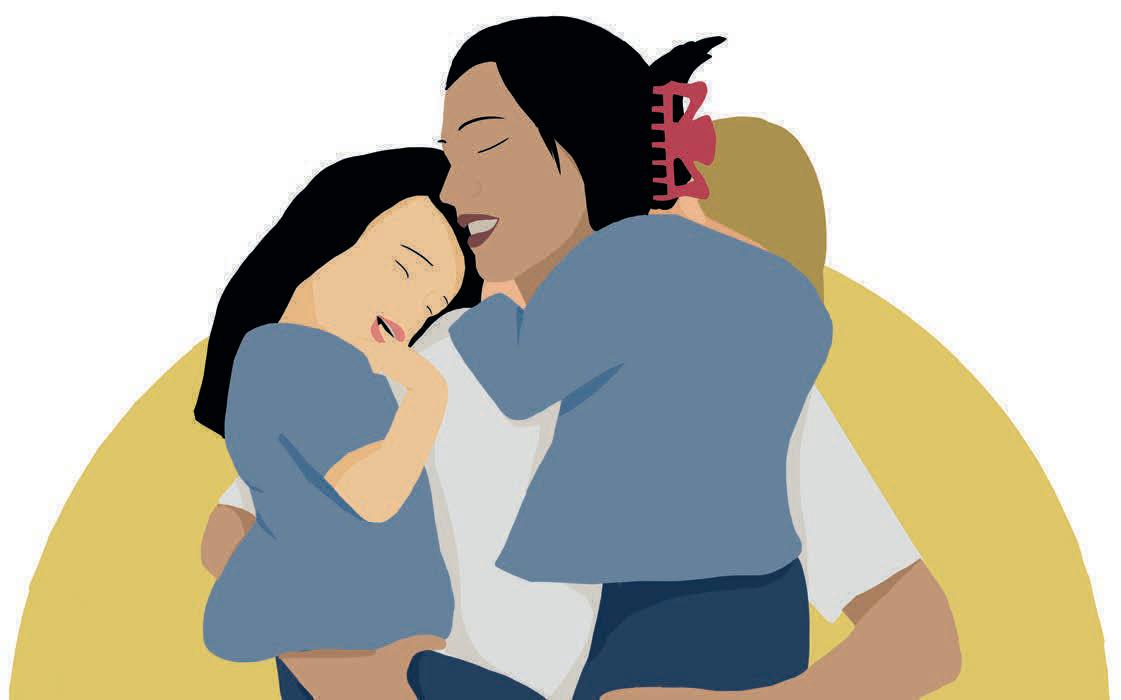Why You Should Care about Politics Daniel Chung (VSA); Graphics by Raphaele Guillemot (VSA)
P
olitics. Yes, that dreaded word that oftentimes leaves us wanting to push the “ignore” button every time we see or hear it mentioned, for any fears of getting into overly-heated debates -- or, more accu-rately, arguments. In fact, some readers of this very article may be wanting to do that exact thing at this moment, to flip the page and turn on from having to read more about politics. But what we’ll attempt to do here is to give you a reason to not give up just yet, a justification against tuning out entirely from the political conversation. We’re going to try to explain why you should care about politics, why you should remain engaged with and knowledgeable about the political processes, and we’ll break it down in neat little bite-sized sections with even neater headlines.
11
Everything is fundamentally political. The phrase “the personal is political” may have, over the years, become associated mainly or even solely with “radical” feminism. However, it’s true, regardless of whether or not we would prefer to ignore the re-ality of the situation under the current circumstances. Everything is fundamentally political in nature in our daily lives. Whether or not the lighting gets to our apartment -- that is, if we live in public housing, a political decision made by the government. Whether or not our health insurance is provided to us in a straightforward manner by the government or dependent on the whims and wishes of possible employers. Again, yet another politically motivated decision by legislators — and mostly dependent on it they’ve been bought out in campaign contributions by the pharmaceutical and healthcare industries. Whether or not the roads are even paved properly, too, or if they’re littered with potholes, depends on the type of government we have, on the lack of cor-ruption in the government that ensures taxpayers’ money doesn’t get laundered about, on whether or not government is even taxing at a high enough rate to provide a basic service. Though at first glance all of these raised examples may seem fairly innocuous questions that we could end up facing on a daily basis out of chance, as explained, everything really does revolve around politics.
ISSIA Article Templates (1).indd 32
Politics is more important than ever before now. As it stands -- and this was said in 2016 by American media during their election -- we are at the precipice of global political revolution, not just in any one country, but on an international, widespread scale. When we look at what is happening around the entire world, what we see is that there is now the seeds being planted for a global movement that could be shaped to finally achieve genuine, positive change on the behalf of millions of people left behind by the fast-moving world we all live in, especially in the wake of the 2008 financial crisis that left millions homeless or further indebted to big money and the top 1%. There’s, when we look at America, a rapidly mobilising leftist, populist movement to elect politicians such as Senator Bernie Sanders (I-V) to the Presidency, and even in down the ballot races such as the political upset of Alexandria Ocasio Cortez’s victory over moderate Democrat Joe Crowley in New York’s 14th Congressional District, or self-proclaimed progressive Shahid Buttar in his challenge against House Speaker Nancy Pelosi to represent California’s 12th District. And, when we look across the world, the same sense is becoming more of a pervading reality on a global level. In France, the yellow vest movement from the grassroots has been fighting for political and economic justice since October in 2018. In Brazil, the election of right-wing demagogue Jair Bolsonaro to their presidency -- and on extremely dubious terms
8/6/2020 2:16:26 PM














